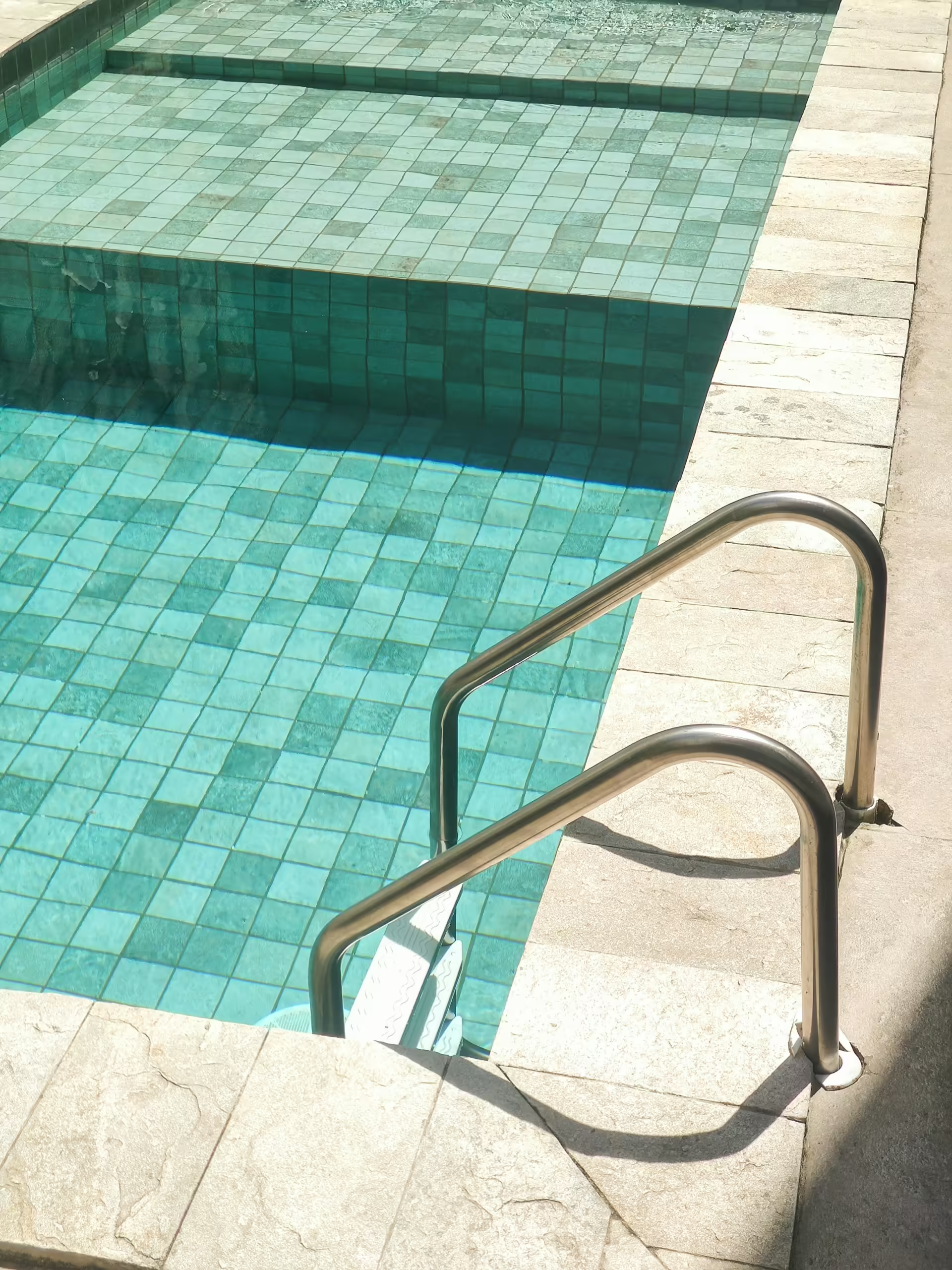In sunny San Diego, having a functional pool heater allows you to enjoy your pool year-round, even during cooler months. Whether upgrading your system or fixing an existing one, timely pool heater repair and installation near me is essential for maintaining comfort and efficiency.
From insufficient heating to electrical issues, pool heaters can develop various problems that disrupt their performance. Understanding these common issues and how to resolve them can save you time and money while ensuring your pool remains a relaxing retreat. Here, we’ll explore the most frequent pool heater problems in San Diego and how PoolLogic can help you restore or install a reliable system.
Lack of Heating or Insufficient Heat
One of the most common complaints from pool owners is that their heater isn’t producing enough heat—or any heat at all. This issue can have several causes, ranging from clogged components to failing internal systems.
Causes
- Dirty or Clogged Filters: Blocked filters restrict water flow to the heater, preventing it from warming the water effectively. This problem forces the heater to work harder, leading to inefficiency or potential breakdowns.
- Faulty Thermostats or Sensors: A malfunctioning thermostat or sensor may send incorrect signals, preventing the heater from reaching the desired temperature.
- Heat Exchanger Issues: Scaling or corrosion in the heat exchanger can impair heat transfer, leaving your pool water lukewarm.
Solutions
- Clean or replace filters regularly to maintain optimal water flow.
- Test and replace any faulty thermostats or sensors.
- Descale or repair the heat exchanger with the help of a professional technician.
Routine maintenance and inspections can prevent these issues from affecting your pool heater’s performance.
Pilot Light or Ignition Problems
Gas pool heaters generate heat using a pilot light or electronic ignition. When these systems fail, the heater cannot operate, leaving your pool cold and uninviting.
Causes
- Burner Obstructions: Dirt, debris, or spider webs can block the burner or pilot light, preventing ignition.
- Damaged Igniters or Thermocouples: These essential components may wear out over time, making it difficult for the heater to ignite.
- Insufficient Gas Supply: Low gas pressure or clogged gas lines can interrupt ignition.
Solutions
- Clean burners and pilot light areas to remove obstructions.
- Replace damaged thermocouples or igniters.
- Check the gas supply for blockages or leaks, ensuring consistent pressure.
For gas-related issues, professional diagnosis is often required to ensure safety and proper functionality.
Strange Noises Coming from the Heater
Unusual noises, such as banging or rattling, often indicate underlying problems with your pool heater. Ignoring these sounds can lead to more significant damage and higher repair costs.
Causes
- Mineral Deposits: San Diego’s hard water often results in mineral buildup in the heat exchanger, causing water flow disruptions and noise.
- Loose or Worn Components: Internal parts such as fan belts, bearings, or panels may loosen over time, creating rattling or squealing sounds.
Solutions
- Descale the heat exchanger to remove mineral deposits and restore water flow.
- Tighten or replace loose components to eliminate rattling or squealing.
Addressing these noises promptly can protect your heater and extend its lifespan.
Water Leaks Around the Heater
Water leaks are a serious issue for pool heaters, as they can damage internal components and lead to costly repairs if left unaddressed.
Causes
- Corrosion: The heat exchanger and other internal parts can corrode over time, especially in saltwater pools or hard water conditions.
- Damaged Seals and Fittings: Worn-out or loose seals and connections can cause water to leak from the heater.
- Cracked Components: Environmental factors, such as freezing temperatures, can cause cracks in the heater housing or internal parts.
Solutions
- Inspect and repair or replace corroded components.
- Tighten or replace seals and fittings to prevent further leaks.
- Winterize your heater during colder months to protect it from temperature-related damage.
Professional servicing ensures leaks are correctly diagnosed and repaired, keeping your heater in top condition.
Electrical Issues
Modern pool heaters rely on advanced control systems to manage their operations. Electrical issues, such as malfunctioning wiring or damaged control boards, can cause the heater to shut down or operate inefficiently.
Causes
- Faulty Wiring: Loose or damaged wiring can disrupt the electrical flow, preventing the heater from functioning correctly.
- Tripped Circuit Breakers: Overloaded circuits or short circuits can trip breakers, cutting power to the heater.
- Damaged Control Boards: Electronic components like control boards and temperature sensors may wear out over time.
Solutions
- Inspect and repair faulty wiring to restore power to the heater.
- Reset circuit breakers; consult a professional if the issue persists.
- Replace damaged control boards or sensors to ensure proper operation.
Certified technicians should always perform electrical repairs to ensure safety and compliance with local codes.
Pool Heater Repair and Installation Near Me: Why Choose Pool Logic
When it comes to maintaining or upgrading your pool heater, PoolLogic San Diego is your trusted partner. Our expert technicians specialize in diagnosing and repairing all pool heater issues, from insufficient heating to electrical malfunctions.
Professional Repair Services
We provide comprehensive repair solutions tailored to your specific pool heater model. From fixing ignition problems to addressing leaks and scaling, we ensure your system runs efficiently and reliably.
Expert Installation
We offer professional installation services if your current heater is beyond repair or you want to upgrade. We’ll help you select the right heater for your needs, ensuring optimal performance for San Diego’s climate.
Preventative Maintenance Tips
Preventative maintenance is the best way to avoid costly repairs and extend the life of your pool heater. Here are some tips:
- Clean filters, burners, and other components regularly to prevent blockages.
- Schedule annual professional servicing to catch and resolve potential issues early.
- Monitor water chemistry to reduce scaling and corrosion risks, particularly in hard water conditions.
By investing in regular maintenance, you’ll save money and keep your pool heater running smoothly year-round.
FAQs: Pool Heater Repair & Installation Near Me
1. What are the signs my pool heater needs repair?
If your pool heater isn’t functioning correctly, look for signs such as inconsistent or no heating, unusual noises like banging or clicking, water leaks around the heater, or error codes on the control panel. Additionally, increased energy bills or a pilot light that won’t stay lit can indicate a problem. Addressing these issues promptly can prevent further damage.
2. How much does pool heater repair cost in San Diego?
The cost of pool heater repair in San Diego typically ranges from $150 to $500, depending on the issue. Minor repairs, such as fixing a pilot light or replacing a thermostat, are on the lower end, while more complex repairs, like replacing a heat exchanger or control board, may cost more. For an accurate estimate, consult a local professional.
3. How long does it take to repair a pool heater?
Depending on the issue’s complexity, most pool heater repairs can be completed within a few hours to a day. Simple fixes, like cleaning burners or replacing small components, are quick. At the same time, more extensive repairs, such as addressing leaks or electrical faults, may take longer, especially if parts need to be ordered.
4. Should I repair or replace my pool heater?
The decision to repair or replace your pool heater depends on its age and the extent of the problem. If the heater is less than 7–10 years old and the repair cost is reasonable, fixing it is usually a better option. However, replacement may be more cost-effective if repairs cost more than 50% of the price of a new unit or if the heater is outdated and inefficient.
5. Can I repair my pool heater myself?
While pool owners can perform some minor tasks, like cleaning filters or checking for loose connections, most pool heater repairs involve gas, electricity, or intricate components. Attempting DIY repairs can be dangerous and may void warranties. It’s best to hire a certified professional to ensure safety and proper functioning for complex issues.
6. How much does it cost to install a new pool heater?
Installing a new pool heater in San Diego generally costs between $2,000 and $5,000, depending on the type of heater (gas, electric, or solar), pool size, and installation complexity. Gas heaters are typically more affordable upfront, while energy-efficient options like heat pumps or solar heaters may have higher initial costs but save money over time.
7. What’s the best type of pool heater for San Diego’s climate?
San Diego’s mild climate makes heat pumps and solar heaters excellent choices for their energy efficiency and ability to leverage the region’s warm temperatures and abundant sunlight. Gas heaters are another option for those who need rapid heating, especially during cooler months. A professional can help you choose the best heater based on your pool size, usage, and budget.
8. How often should I service my pool heater?
Schedule annual servicing with a professional to keep your pool heater running efficiently. Regular maintenance includes cleaning burners, inspecting components, checking for leaks, and ensuring proper gas or electrical connections. This helps prevent breakdowns and extends the lifespan of your heater.
9. Why is my pool heater not heating properly?
If your pool heater isn’t heating correctly, possible causes include:
- Clogged filters restrict water flow.
- A malfunctioning thermostat or temperature sensor.
- Scaling or mineral buildup in the heat exchanger.
- Insufficient gas supply or low water pressure.
- A professional inspection can identify the root cause and recommend a solution.
10. How can I extend the life of my pool heater?
To prolong the lifespan of your pool heater:
- Clean filters regularly to maintain water flow.
- Keep water chemistry balanced to reduce scaling and corrosion.
- Protect the heater from environmental damage by covering or winterizing it during colder months.
- Schedule regular professional maintenance to catch and fix minor issues before they escalate.
Taking these steps will ensure your heater operates efficiently for years to come.
If you’re looking for pool heater repair and installation near me, trust PoolLogic San Diego for expert service. Contact us today for reliable repairs, professional installations, and ongoing maintenance to keep your pool comfortable year-round!
Final Thoughts
A functional pool heater is essential for enjoying your pool in San Diego’s cooler months. Still, common issues like insufficient heat, ignition problems, leaks, and electrical malfunctions can disrupt your experience. Understanding and addressing these problems promptly can ensure your pool remains a relaxing retreat all year.
If you’re looking for pool heater repair and installation near me, PoolLogic San Diego offers reliable, professional services tailored to your needs. Contact us today to schedule a repair, maintenance, or installation and keep your pool heater performing at its best.



